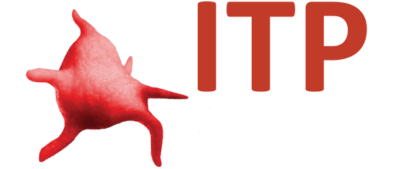Stassi Austin attended the 2024 ITP patient Conference in Canberra, ACT, from her home state of South Australia. Here’s what she thought about this year’s conference.
It’s a beautiful morning in the nation’s capital on Saturday, the 9th of March, as ITP patients and families, clinicians, and medical professionals alike made their way to the John Curtin School of Medical Research for the 2024 ITP Australia and New Zealand Patient Conference.
There is a quiet buzz around the room as people converse and catch up with one another. For some, this is the first time that they’re in a room with other ITP patients. For others, it’s a chance to meet up with like minded people again.
Our day started with a wonderful introduction from Founder and CEO Danielle Boyle, who set the tone for the day, before calling on Dr Phi Choi, a member of the Advisory Board, to start the first session for the day.
ITP Biobank – Dr Phil Choi
All attendees were given the chance to participate in the National Platelet Referral and Research Centre’s (NPRC) ITP Biobank by donating a sample of blood. Results were given directly to those who had participated at the end of the Conference.
A heartfelt thank you to the entire research team involved at the 2024 ITP Patient Conference including Dr Phil Choi and Professor Elizabeth Gardiner. This will be a fantastic resource for years to come.
Haematology 101 – Dr Danny Hsu
Joking that ITP patients and families often have quite an extended amount of knowledge around blood and bleeding disorders, Dr Danny Hsu presented on the basics on hematology and how it relates to Immune Thrombocytopenia.
 Paediatric ITP – Dr Chris Barnes
Paediatric ITP – Dr Chris Barnes
As someone diagnosed with ITP, as a paediatric patient, I enjoyed listening to Dr. Chris Barnes, who focused on the differences in the diagnostic and treatment processes, and unique considerations that should be taken when it comes to treating ITP in children, particularly how vital a shared decision making process is between the patient and their carers/families and their healthcare provider.
Rescue Therapy – Dr Phil Choi
After lunch, Dr. Phil Choi discussed rescue therapy options for ITP patients through different scenarios and their potentially effective treatments, noting that there is no universally agreed upon second line treatment and all care should be tailored to the patient’s specific needs.
 ITP Treatment Guidelines Update – Dr Chee Wee Tan
ITP Treatment Guidelines Update – Dr Chee Wee Tan
Dr. Chee Wee Tan provided an update on the treatment guidelines for ITP, discussing recent advancements that have been made to accelerate various second-line treatment options, including easier access to TPO-RAs. It was really insightful to hear how, thanks to the International ITP Alliance, patients in Australia and New Zealand will benefit from research and advocacy being undertaken in different parts of the world.
Alternative options when TPORA’s aren’t working – Dr Robert Bird
Following, Dr. Robert Bird explored alternative treatment options for ITP patients when traditional therapies targeting Thrombopoietin Receptor Agonists (TPORAs) are ineffective or not well-tolerated.
Healthcare Professional Register: First Look – Danielle Boyle
Excitingly, conference attendees were given a sneak peak first look at the new Healthcare Professional Register Danielle and the team have been working to compile! The idea of connecting patients with healthcare providers who specialize in managing ITP is something that I think will really make a difference in our community and help to alleviate the worry and stress that comes with managing a rare disease.
Fitting for our location in Canberra, our final session for the day was ‘ITP Question time’, where we were able to ask all presenters questions about any of the information at the conference, their opinions on certain treatments or best management practices.
Often it can feel quite isolating managing a rare blood disease, particularly when explaining the nuances of the disorder to family members, your workplace or healthcare professionals so it was so refreshing to be in a room full of people who completely understood your situation and to have passionate healthcare professionals who want to make a difference.
Overall, the conference was such a wonderful experience that left me feeling informed, supported, and hopeful about the future of ITP treatments and research. I would highly recommend attending the next Annual Patient Conference and the virtual patient meetings throughout the year.
Thanks to Danielle and the team for a wonderful conference and the tireless work they do to advocate for all ITP patients!



 Paediatric ITP – Dr Chris Barnes
Paediatric ITP – Dr Chris Barnes ITP Treatment Guidelines Update – Dr Chee Wee Tan
ITP Treatment Guidelines Update – Dr Chee Wee Tan
